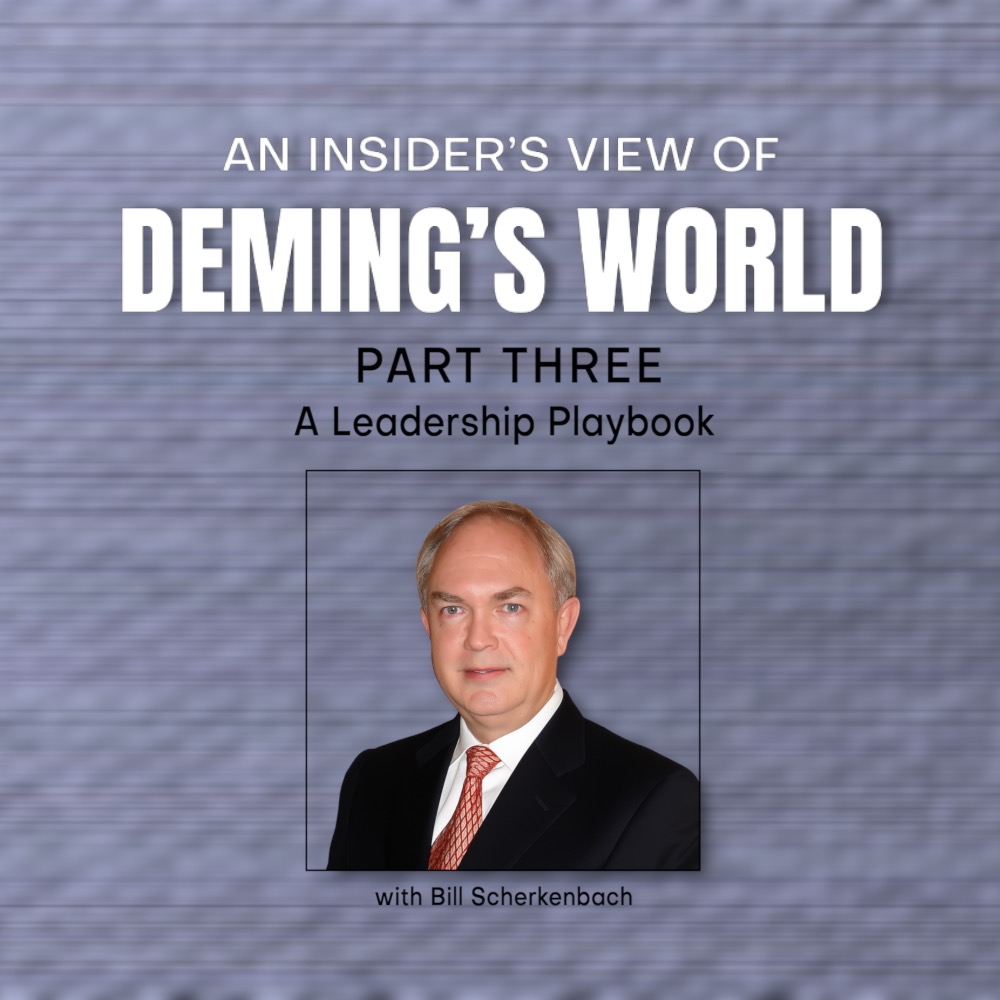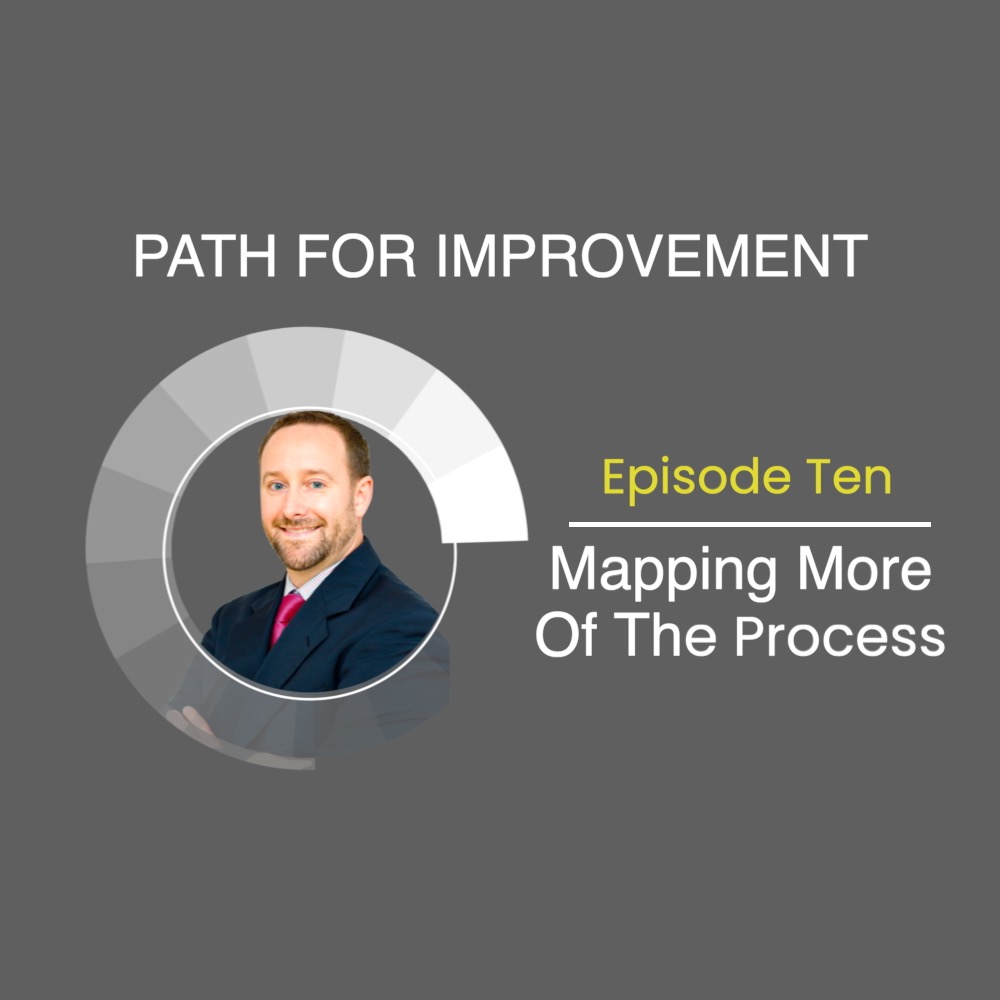Dr. Deming's Advice to Educators: Crazy Simple Education (Part 1)
Description
What if learning could feel like a team sport instead of a pressure test? Lyle "Lee" Jenkins, PhD., a longtime educator, shares how a chance encounter led him to a Deming conference specifically for educators in 1992, which transformed his thinking. Deming emphasized defining learning outcomes, rejecting numerical goals, and avoiding ranking. Lee explains how Deming methods prevent "cram and forget", celebrate small wins, and rekindle students' natural love of learning. (Lee shared a powerpoint during the episode, which you can find on our website.)
TRANSCRIPT
0:00:02 .3 Andrew Stotz: My name is Andrew Stotz, and I'll be your host as we continue our journey into the teachings of Dr. W. Edwards Deming. Today I'm talking with Lee Jenkins, who is a career educator in public school, ending his career as a school district superintendent. It was as a superintendent that he was introduced to the teachings of Dr. Deming, and he has been applying it to his life and work since then. In his business, Crazy Simple Education, he publishes books and schedules speaking engagements. Lee, how you doing?
0:00:38 .4 Lee Jenkins: I am doing just great, Andrew. Yeah, this has been fun to put together. And just to highlight, I haven't done this before, just to highlight just simply what Deming taught. We've obviously, over the years added other things, but today we're just talking about what did he teach, just the pure form of it and our implementation of that.
0:01:01 .6 Andrew Stotz: Yeah. And I think you and I have already met once and gone through this. It's pretty interesting, you know, I think what I enjoyed about our discussion, truthfully, what I liked, was your energy and the energy about the teachings of Deming and how we can apply that. And so I'm looking forward to seeing you bring that to the audience. Now, for those that are listening, we're going to have... Lee's got a PowerPoint and a presentation he's going to share, but we'll walk you through it. It's not like it's full of very complicated things. So, Lee, why don't you take us through a little bit about what you've prepared here?
0:01:38 .3 Lee Jenkins: Okay, I can do that, Andrew. I was like anybody else as a school superintendent. I went to a meeting of the Association of School Administrators. I can't even tell you what city or state it was in, but I was there. And while I was in the hallway between sessions, Lew Rhodes, who worked for AASA, he came up and he said, "Lee, I think you'll enjoy this next session." And that's why I've called this, One-Minute Invite That Changed My Life. So I went in and no idea, I just liked Lew. I trusted him. And it was David Langford's an administrator. And that's how I was introduced to Deming and spent a lot of time after that, reading everything I could get my hands on and absorbed it. And I knew that he was correct in how organizations are operating. And so that intrigued me a great deal. But it was the same information that he shared with all organizations. I just took them and applied them to education. But then two years later, in 1992, American Association of School Administrators, under... With Lew Rhodes' leadership, sponsored a Deming conference. So I went to Washington, DC in January that year to hear him speak.
0:03:20 .2 Lee Jenkins: We were there four days. He was assisted and was a part of it for two days. And for two days it was him on stage, the red beads, you know, all the things that listeners know about with Dr. Deming. And I would say that the first part of it was the things you would normally expect to hear. Now, understand, the audience here was educators. And I know there were educators sprinkled in his audiences in his whole speaking career. I know that. I wasn't one of them, but I know that. This was one that was specifically for educators. And nobody's told me any other time when he spoke to educators as the audience. So, but just things he'd say that we've all heard.
0:04:13 .7 Lee Jenkins: Best efforts are not enough, you have to have knowledge, you have to have theory. He said too, you can't delegate quality. And I had school superintendents doing that all the time. You ask them about, anything about teaching or learning, they say, oh, no, I'm not involved in teaching and learning. I have an assistant superintendent for instruction. In other words, they've delegated quality. Deming talked about wasting time and wasting money in all organizations, and certainly schools are good at that. I'm going to talk at the end of this, how I took it onto one other point which is similar to what he's talked about also. The losses of the current system. He said in one place that, for 50 years... Now, he said this in the '90s, but for 50 years, America has been asking for better education without a definition of what better education is. And...
0:05:10 .5 Andrew Stotz: That reminds me of talking to Bill Scherkenbach, who showed a picture of him, Dr. Deming, in the old days at an event of national teachers, and he said they really couldn't come up with a conclusion about what was the aim. [laughter]
0:05:25 .9 Lee Jenkins: Yes, right. It's... Yeah, okay. And then he described fear, brings about wrong figures. So what did our government do? No Child Left Behind, which says, you increase your reading scores or your math scores or we're going to fire you. Well, then you get wrong numbers. That's what he predicted, that numerical goals are a failure. I had a discussion with a pastor several years ago and he said, "Our goal is to have 2,000 people in attendance on Easter Sunday." I said, "Okay, what's the best we've had so far?" "It was around 1800." "Okay, what happens if we have 1900 on Easter Sunday, the best ever? What do we do?" Well, it kind of caused him to think, which is my purpose. It wasn't to be critical, it was to get him to think. You could do your best ever but call yourself a failure because you didn't meet this artificial number. And I can hear Deming talking about just pulling the number out of the air. And that ranking is a failure. We rank and rank and rank in schools. I've got a granddaughter in first grade. School has just started. She's student of the month in her class, which means there's 19 failures of the month. I mean, Deming, it's just sad to see that it's still going on. But then Dr. Deming, I don't think it was in... It wasn't in his PowerPoint. Not even a PowerPoint. We had transparencies.
0:07:12 .0 Andrew Stotz: Acetates.
0:07:12 .6 Lee Jenkins: It wasn't in his transparencies. It wasn't in the handouts. But it's like he went on this little tangent and that's what has captivated my career, his tangent. And it was Dr. Deming, the statistician, talking about the classroom. So I'm going to go through what he said, just as he said, point by point. He said, number one, tell the students what they will learn this year. Now, when I share this with people, they say, oh, yeah, our college professors had syllabuses. I said, no, no, a syllabus is what the professor is going to teach. Dr. Deming talked about, what are they going to learn? They're two different things. What are you going to learn? And you give it to them. And we've done this pre-K, kindergarten all the way to grade 12 and a little bit of work at universities.
0:08:14 .6 Andrew Stotz: And how detailed do you go on that? I see you're showing concept one to concept 19. Is it, you know, this is everything you're going to learn, or this is generally what you're going to learn?
0:08:26 .5 Lee Jenkins: Well, this is a partial list. So it's the essential.
0:08:31 .6 Andrew Stotz: Yep.
0:08:32 .6 Lee Jenkins: I tell people, put down what's essential. Do not put trivia on the list. Now, of course you teach trivia. It's interesting, it's fun, but they're not accountable for it. And so it's what students have been asking for for years. What am I supposed to learn this year? I don't know how to study for the exam. I don't know what's important. I was at a... Doing a seminar for teachers in Missouri. And I said, "I wasn't a good test taker in college. Were some of you?" And a lady raised her hand and said, "Oh yeah, I was really good at it." I said, "How did it work?" She said, "Well, I was in a study committee and by design, half of our time was sharing our insights as we psyched out the professor. And then once we agreed on what was important and the personality of that professor, then we studied that." That's nonsense. Here's Dr. Deming saying, just tell them what you want them to learn, it's so simple.
<p class="MsoNor























